2023 Summer Reading Program
Digital Distraction and Its Impact on Our Learning Community
In today’s technology-driven world, many of us feel distracted and overwhelmed by the sheer volume and constant presence of social media, texts, emails, advertising, and more.
Meredith’s 2023 Summer Reading Program will engage our community by providing common learning resources that will address how technology overload can affect our thinking, learning, and interactions with others.
First-year students and other program participants will read, listen, and watch the resources below – and then engage in discussions, service projects, and other activities during the fall semester.
Contact Information
Chrissie Bumgardner
Co-Director, First Year Experience
bumgardner@meredith.edu
Lisa Brown
Co-Director, First Year Experience
lmbrown@meredith.edu
Reflection Questions
Question 1
Why do you think Meredith chose the topic Digital Distraction and Its Impact on Our Learning Community for our common learning experience this year?
Question 2
What are five digital distractions that might impact your ability to focus/concentrate on school work and your in-person relationships?
Resource Specific Questions (10 total)
Resource 1: Heavy Multitaskers Have Reduced Memory
- What is the difference between switching and multitasking?
- What is heavy media multitasking and how do you think it could impact academic success?
Resource 2: How to Focus Like It’s 1990
- Which of the tips for avoiding distraction in this article seemed most useful to you?
- Are any of these techniques you’ve already tried?
Resource 3: Look up! Is your smartphone replacing your social life?
- What are three signs your phone might be hindering your college experience?
- What is one step you can take to lessen any negative effects?
Resource 4: Doomscrolling + 3 other signs you need a break from social media
- What are four signs that a person might need a break from social media?
- Discuss these and how they might impact the user negatively.
- How do you know when you need a break from social media?
Resource 5: Why Our Screens Make Us Less Happy
- Dr. Alter describes how people report themselves feeling when they’re using their screens. Do your feelings line up with those he describes? How do different kinds of screen use tend to affect your mood?
- This talk mentions a couple of suggestions for ways to put screens aside. Can you think of any additional ideas for doing so?
Resource 6: Flow, the Secret to Happiness
- Are there times in your own life and work where you have experienced a state of “flow”? What does that experience feel like for you?
- How did it impact your work or the task you were focused on?
- What conditions help you achieve a state of “flow”? How might creating a “flow” state be helpful in your academic work?
Resource 7: Multitasking Is Killing Your Productivity
- What is the difference between multitasking and task switching?
- Why are we all so tempted to ‘multitask’ when research shows it is monotasking that is the best for learning, productivity, better quality of work, and better efficiency?
- How we can stop multitasking seems an obvious next step, do you agree with this? Why or why not? And if so, what are you going to do to work towards monotasking?
- What challenges do you have for ‘being in the present moment?’ and moving forward, how will you be more intentional about being in the’ here and now’ versus attempting to multitask or task switch?
Resource 8: Speaking of Psychology: Why our attention spans are shrinking, with Gloria Mark, PhD
Dr. Mark says that studies show that there is a correlation between the frequency of attention switching and stress. The faster the attention switching occurs, stress, as measured through heart rate monitors, increases.
- Have you experienced this yourself?
- If so, what have you done to minimize this type of stress?
Resource 9: Feeling Uncomfortable? Don’t reach for your phone – do this instead.
- Can you think of a time when you have used your phone to distract yourself from uncomfortable feelings?
- How might you approach those feelings differently after listening to the meditation?
Resource 10: Why You Can’t Multitask and Why That’s a Good Thing
Prof. David Badre says that the brain exerts a system of “cognitive control” at all times which allows us to process thoughts and adjust our actions seamlessly in order to perform routine tasks as we go through the day. When we try to do multiple things at once, we are performing more than one action through this same system, which results in competition and interference in our thought process.
- What are some strategies you can use to maintain a work environment that does not reinforce the learned impulse to multitask?
3 Steps to Help You Manage Your Technology
- Understand what’s distracting you.
- Take a timed tech break.
- Try deep reading (on paper).
Read more about how to implement these tips: How to Focus Like It’s 1990
“If you’re multitasking while doing something significant, like an academic paper or work project, you’ll be slower to complete it and you might be less successful.”
Anthony Wagner
Professor of Psychology, Stanford University
Source: Heavy Multitaskers Have Reduced Memory


